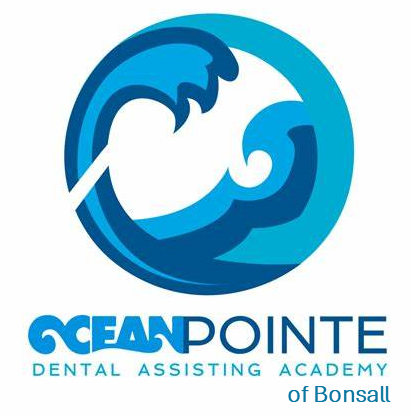Blog Layout
Attending a Career School Might Be a Financially Better Choice Than College.
julian milian • Jun 24, 2020
Here's Why.

Going to a four year college seems like the automatic choice for a lot of people and framing those thoughts start late in their junior, and early in their senior year of high school. For the most part, their primary reason for attending college is obvious—more income. According to the National Center for Educational Statistics, a college degree accounted for $15,000 in additional income per year versus a high school diploma ($30,000 versus $45,000). Over a thirty year career in the workforce, that adds up to a $450,000 difference. While on the surface, these numbers do paint a rosy future for the prospective college graduate, they however, and as four year colleges would have it, do not really look at the closing income gap of career school training in todays job market place. Due to the increasingly high costs associated with a traditional college education, as well as other drawbacks, more and more people have been considering career school as an education alternative.
For starters, a bachelor's degree typically takes four years of study, which means that people who enter the workforce after receiving their degree aren't doing so until age 22. However, the past few years have seen a graduation age increase well into age 25 as five years or more for a college degree is becoming more of the norm. That shaves some years off of a person's career.
Another drawback is the cost. The average bachelor’s degree in the United States costs $127,000.
Very high tuition and attendance costs, and length of time to complete results in high debt and potential loss of income, but there is a third drawback to four year college attendance; and that is, some people simply aren't prepared for the rigors of a four year college and this factor alone has also contributed to high college attrition rates.
The Institute of Education Statistics estimates that 40% of students at four-year colleges and 46% of 9-month to two-year career school students drop out before completing their program. Not only have these students incurred a large debt expense of attendance that still has to be paid back, but they also left without receiving a degree or a certificate of any kind. Compare that to our (MCP) graduation rates of 98%.
The big difference is that with a fast-track, outcomes-based curriculums such as our dental assisting program, students remain engaged through the intensity levels of the condensed curriculum learning mode that is delivered in combination with lecture demos, lab trainings in an actual dental setting, equipment, and short-horizon completion leading directly to employment. Compare this to sitting in class from 9-months to 4+ years with mock labs or large theory-laden lecture halls.
In essence, a fast-track career school especially offers a pretty compelling career path, particularly when compared to the college path described above.
More importantly, the salary of graduates from a fast-track career specific program isn't that much of a drop-off compared to a four year degree. A career school graduate will make about $42,000 per year. Over the course of thirty years, the difference between that career school graduate and the four year college graduate is only $90,000 (download the infographic at he bottom of the page).
Something else; with a career school, graduates will enter the workforce two years (2-year associates degree), three years (9-month programs) and 4 years years (4-month programs ) earlier.
That amounts to from two to four additional years of income in which the career school graduate will make on average.
$42,000 each year x 2 work years ( for associates degree career school grads ($84,000)
$39,000 x 3 work years for 9-month school graduate ($117,000)
and $ 39,000 x 4 work years for a graduate of a dental assisting school for example ($156,000).
That means that at age 52 (after 30 years in the workforce versus 34 for the career school graduate), the college graduate will only be ahead by $8,000 on lifetime income, even with excluding the large student loan debt.
Also, the average career school certificates or degree costs $33,000 (2 year associates), $18,000 (9-month certificate), or $5,806 (MCP’s dental assisting certificate) which, compared to a $127,000 bachelor's degree, means a savings of $94,000, $109,000, or in the case of MCP’s certificate program, $121,000 respectively. But that's not all!
If you assume that these students are fully financing their education with loans at 4% over ten years, the bachelor's degree will cost $154,000.
Please understand that I'm not opposed to a four year degree; instead, I'm simply making a strong case for an option that many people overlook when deciding what to do after high school. And I don’t just mean recent graduates; this includes millions of adults over the age of 22 who are stuck in either dead-end jobs they hate, underemployed jobs, are return to work moms, or unemployed. The advantages of a four year degree are numerous, yes: you're going to earn much more later on in life and you also have the door wide open to continue your studies and earn substantially more with a masters degree or doctorate.
While in many cases, career school graduates are very limited on opportunities to continue to bolster their education, there are some industries that require only a career school education. Dentistry as such is one of them. Because of workforce demands outpacing the availability of trained dental assistants, the population taking better care of their teeth, and the continuous advent of new dental technologies and procedures, strong opportunities for additional training and advancement exist such as expanded functions certifications, dental office management, and even dental hygiene school.

By julian milian
•
24 Jun, 2020
If you’re tired of jumping from one odd job to another, or simply want a change of pace from your current job routine, then have you considered becoming a dental assistant? We realize that at first, this can sound a little intimidating, but don’t be discouraged! With OceanPointe Dental Assisting Academy of Seattle, our hands-on learning environment will not only prepare you for a new career in dental assisting but ensure that you receive the highest level of education from currently practicing dentists, dental assistants, and hygienists who are passionate about what they do & want to help you succeed! So why should you become a dental assistant? There are numerous benefits. But the very first is time! In 13 weeks, you could be enjoying a rewarding career that you have always dreamt of but thought unobtainable! Just because it is a short time period doesn’t mean it won’t be challenging. Our course is fast-paced and intensive. There won't be time for you to be bored or discouraged. Remember, all great things in life are not without their obstacles! If you’re a determined, self-driven individual, you’re already halfway there! If you hate jobs that have you repeating the same motions and tasks every day, then you'll love dental assisting. No day is ever the same. There are a variety of tasks that you will be expected to perform, and depending on the dental office, and the patient, your productivity level will vary almost daily. From taking x-rays to preparing the examination rooms, to cleaning the dental instruments and organizing patient records, there will never be a dull moment! Unlike other jobs that pay by a commission or vary depending on the number of customers you receive, such as waitressing, a dental assistant position has steady excellent pay that with most dental clinics, come with dental benefits and discounts, meaning that your spouse or your children can receive the care they need to lead happy, healthy lives! Further perks to working as a dental assistant can include: Paid holidays and sick leave Helping others Opportunity to advance Meeting new people Quiet, calm working environment This is just a summation of what you can expect to encounter if you choose to become a dental assistant. If you’re considering taking the leap and making this your career of choice, then call or visit us today and we will help you get started! 206-299-0387 or Register here.

By julian milian
•
24 Jun, 2020
So, you’ve completed a training program and you are now a state Registered Dental Assistant – what’s next? Well, you have many options. Dental assistant school is by not the end of the road. Now that you are working as a dental assistant, there are advanced courses you can take to expand your scope of practice. Two of the most common certifications are coronal polishing and dental sealants. CORONAL POLISHING CERTIFICATION Coronal polishing is perfect if you are doing assisted hygiene or working in a pediatric office. In case you don’t know coronal polishing is a procedure used to remove stain and plaque from the enamel surfaces of the teeth after the removal of hard deposits such as calculus from the tooth surfaces. It is nice if a hygienist is running behind. The assistant can jump in and polish and floss for the patient at the end of the appointment. It is important to note that a dental assistant isn’t taking the place of a hygienist in a pediatric setting and only polishing on kids. A dental assistant cannot scale or remove hard deposits but a dentist or hygienist can. Even children get hard deposits and if not removed can lead to early gum disease. Coronal polishing is a wonderful certification to have. It will make you very marketable or help you get that raise you deserve. DENTAL SEALANT CERTIFICATION Dental sealant certification allows an assistant to be independent and also productive for the office. It is a great certification to have. Dental sealants help protect a tooth from a cavity. It does not involve any drilling. It is a coating that flows into the deep grooves of a tooth to prevent plaque and bacteria from nestling into these areas causing a cavity. They are most common for children between the ages of 6 and 12. This is because their new adult molars start coming in. A dental sealant is a 3-step process that requires keeping the tooth very dry prior to applying the sealant in order for it to be effective and successful. It is important that a dentist check the teeth to be sure there is no start of a cavity or discoloration on the tooth that could lead to a cavity prior to application. You never want to seal in decay because it will mushroom under the surface of the sealant leading to a large cavity for the child. This is typically a continuing education course available at OceanPointe Dental Assisting Academy that you can sign up for. OTHER CE CERTIFICATIONS Other certifications available that you can get without being state board certified include nitrous oxide monitoring. This allows the doctor to leave a patient on nitrous oxide to do an exam on another patient. Someone must be in the room with a patient at all times if they are on nitrous oxide and having this certification allows you to stay in the room by yourself with the patient and supervise them. Nitrous oxide is breathed in through the nose and is used to help a nervous patient relax during a procedure. It is nice because the patient can drive her/himself to and from the appointment as it is completely out of their system at the end of the procedure. EXPANDED FUNCTIONS DENTAL ASSISTANT You can go on to become an EFDA or Expanded Functions Dental Assistant taking a Washington State Department of Health approved course. You should gain at least 1-2 years of chairside experience before taking the course. OPDA will be offering an approved EFDA course in 2020. An EFDA can place fillings in the mouth and makes around $30.00/hr. starting out. Many assistants choose to go this route due to the significant pay increase. Continuing education courses are important and required in dentistry each year. This expands your knowledge in the profession so that you can continue to educate your patients about the latest news and technology in dentistry.

By julian milian
•
16 Sep, 2019
Write about something you know. If you don’t know much about a specific topic, invite an expert to write about it. Having a variety of authors in your blog is a great way to keep visitors engaged. You know your audience better than anyone else, so keep them in mind as you write your blog posts. Write about things they care about. If you have a company Facebook page that gets lots of comments, you can look here to find topics to write about.
Copyright © 2020 OceanPointe Dental Assistant School is a division of Medical Curriculum Partners, Inc. and is licensed
and regulated by the California Secretary of State.
